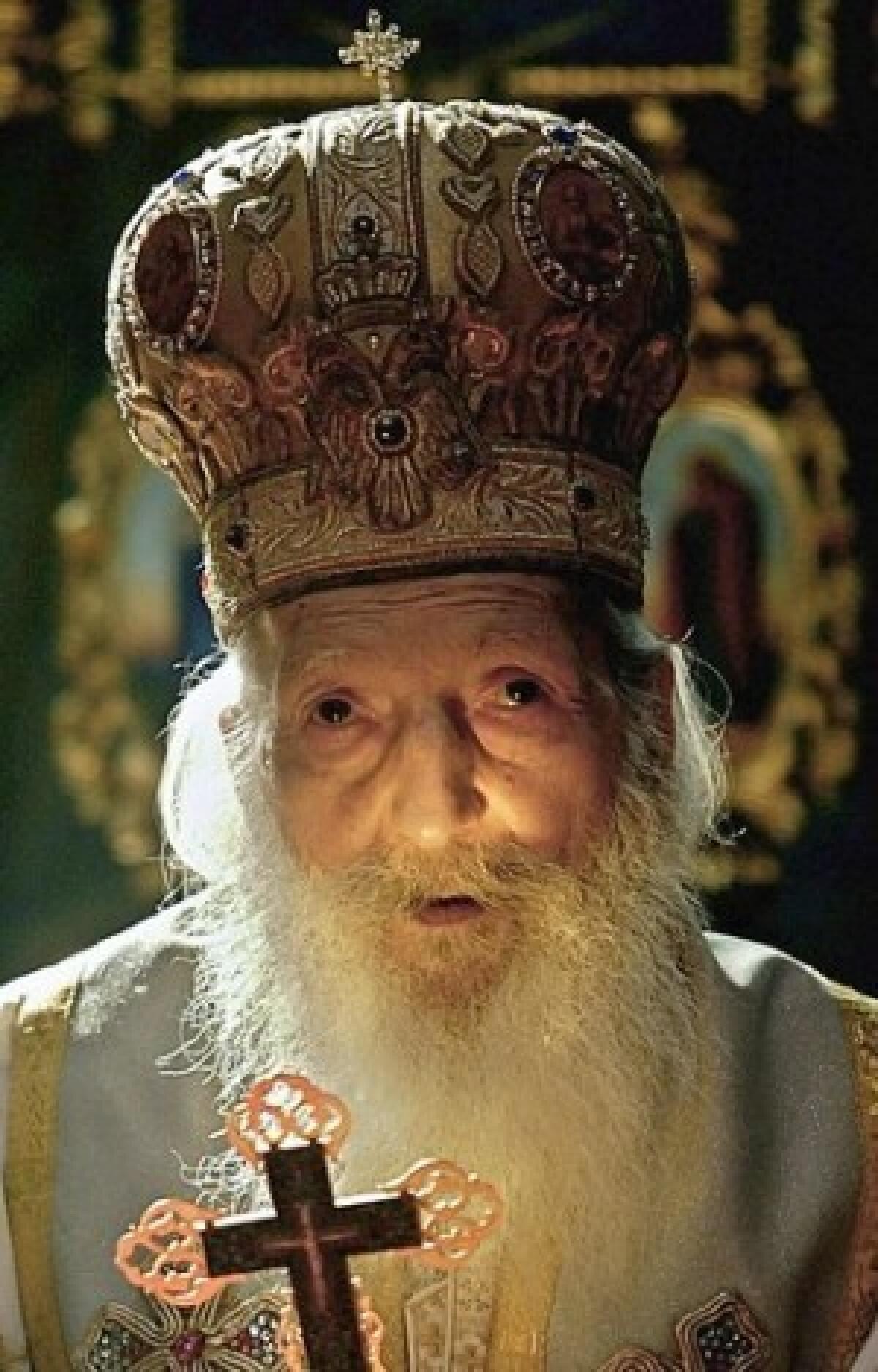PASSINGS: Patriarch Pavle, Paul Wendkos

- Share via
Patriarch Pavle
Serbia’s Orthodox leader
Patriarch Pavle, 95, who led Serbia’s Orthodox Church and called for peace and conciliation during the Balkan ethnic conflicts of the 1990s but stopped short of openly condemning Serb nationalism, died in his sleep Sunday in Belgrade of cardiac arrest, the church and Belgrade Military Hospital said.
Pavle had been hospitalized for two years with heart and lung problems.
The government proclaimed three days of national mourning.
Pavle took over the church in 1990, just as the collapse of communism ended years of state policy of repressing religion. He headed the church during the turbulent years of the Balkan wars and the collapse of former President Slobodan Milosevic’s regime in 2000.
President Boris Tadic called Pavle’s death a “huge loss” for the nation.
Pavle often spoke against violence in the ethnic wars that Orthodox Serbs fought in the 1990s against Catholic Croats and Bosnian Muslims.
The Serbian Church eventually broke with its tradi- tion of formal neutrality in 2000, openly urging Milosevic to step down after the regime’s humiliating defeat in 1999 following NATO bombing that ended his crackdown against ethnic Albanian separatists in Kosovo.
The church’s demand helped lead to the popular revolt that eventually ousted Milosevic in October 2000. He died in 2006 during his trial on war crimes charges at a U.N. tribunal in The Hague, Netherlands.
The patriarch then struggled to rally international support for protection of ancient Serbian churches and monasteries that came under attacks by Kosovo’s mostly Muslim ethnic Albanians.
Critics, however, faulted him and other Serbian religious leaders for failing to be equally vocal when Serb troops previously destroyed Catholic churches and Muslim mosques in Croatia and Bosnia, or launched major ethnic-cleansing campaigns against non-Serbs in the Balkans.
Pavle was born Gojko Stojcevic on Sept. 11, 1914, in the village of Kucani.
Paul Wendkos
‘Gidget’ director had long career
Paul Wendkos, 84, a director whose more than 100 film and television credits included the 1959 movie “Gidget” and its two sequels, died Thursday at his home in Malibu of a lung infection that followed a stroke, family representative C. Christie Craig said.
“Gidget,” starring Sandra Dee, was followed by “Gidget Goes Hawaiian” in 1961 and “Gidget Goes to Rome” in 1963. Wendkos’ other films included 1969’s “Guns of the Magnificent Seven.”
For television, he directed movies and mini-series such as “The Legend of Lizzie Borden” in 1975, starring Elizabeth Montgomery, and “A Woman Called Moses” in 1978 with Cicely Tyson. He was nominated for an Emmy for “The Taking of Flight 847: The Uli Derickson Story” with Lindsay Wagner in 1988.
Wendkos was born Sept. 20, 1925, in Philadelphia and served in the U.S. Navy during World War II. He attended Columbia University in New York and later studied film history and aesthetics at the New School for Social Research.
Wendkos’ first film was the documentary “Dark Interlude” that looked at rehabilitating the blind, and his first narrative movie was the 1957 drama “The Burglar,” starring Jayne Mansfield, who was little known at the time.
-- times staff reports [email protected]
More to Read
Start your day right
Sign up for Essential California for the L.A. Times biggest news, features and recommendations in your inbox six days a week.
You may occasionally receive promotional content from the Los Angeles Times.




